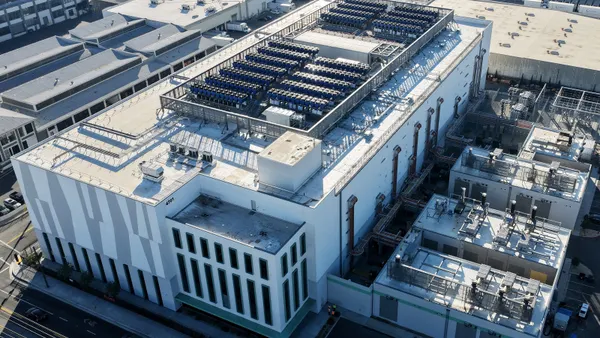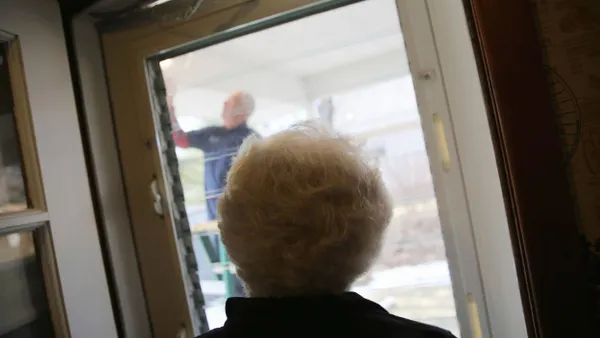Dive Brief:
- Massachusetts utilities on Thursday filed a three-year, $5 billion energy efficiency plan with the state’s Department of Public Utilities, aiming to weatherize more than 184,000 homes and install heat pumps for more than 119,000 households from 2025 to 2027.
- The Mass Save plan aims to deliver $13.7 billion in total customer benefits along with 8.3 million MWh and 1.1 billion therms in energy savings, with a focus on marginalized communities.
- The 2025-2027 proposal has a “huge emphasis on thoughtful electrification,” said Tilak Subrahmanian, vice president of energy efficiency for Eversource Energy. “Given our climate zone and given the current commodity prices, all other things being equal, if you switch somebody heating with gas to heating with electricity, your bills go up by about 30%.”
Dive Insight:
Stakeholders spent 18 months developing the plan through the Massachusetts Energy Efficiency Advisory Council, before voting 14-0 to advance the proposal to state regulators, said Subrahmanian.
“We were hoping for a large majority of support. We were very happy to have no dissenters,” he said. Voting members of the advisory council include consumer and environmental advocates, industry and municipal representatives, the Massachusetts Department of Environmental Protection and efficiency experts.
Member utilities of Mass Save include Eversource, Berkshire Gas, Cape Light Compact, Liberty Utilities, National Grid and Unitil.
The advisory council’s equity subgroup was particularly vocal during the plan’s development, with a focus on how to reach marginalized consumers, Subrahmanian said. The plan includes $1.9 billion in program funding dedicated to equity-related initiatives, and anticipates more than $4.4 billion in equity benefits.
Weatherization efforts will target over 75,000 low- and moderate-income households and more than 51,000 rental units. Heat pumps will be installed in more than 23,000 low- and moderate-income households and more than 15,000 rental units.
“In our negotiations, we placed a strong emphasis on supporting low- and moderate-income communities, expanding access for renters, and prioritizing electrification,” Massachusetts Department of Energy Resources Commissioner Elizabeth Mahony said in a statement.
Mahony called the three-year efficiency plan a “groundbreaking proposal.”
“We’re especially excited about the strong focus on equity and distributive energy justice,” she said. “Under this plan, the people hit hardest by climate change will be eligible for free new appliances and insulation, and they will have personalized support to manage contractors.”
There is a “huge emphasis in this plan on multilingual outreach and engagement,” Subrahmanian said, pointing to the diversity of Eversource’s Boston-area service territory.
“That's where community groups and what we call our ‘community first partnerships’ become really important,” he said. “We're really doubling down on that. We need these folks and their help and their credibility in the communities, to reach these populations.”
The 2025-2027 plan includes about $1 billion more in efficiency investments than the current plan, and shifts focus from commercial and industrial efficiency to residential, Subrahmanian said.
The shift is partly “because more of the [greenhouse gas] emissions are coming from residential buildings,” he said. But also, “we don't have the technologies at the right price performance” to fully decarbonize larger, older commercial buildings yet, he added.
The three-year plan must now be approved by the DPU. A series of public hearings on the proposal will be followed by regulatory hearings and testimony, Subrahmanian said. Regulators must issue an order by the end of February.
“They've got a really tough job over the next three months ... because of the primary way these things are funded,” Subrahmanian said. The Mass Save program adds about $18 to average customer bills, though it is also funded by energy savings bid into the ISO New England forward capacity market and by revenues from the Regional Greenhouse Gas Initiative. It saves energy at a cost of roughly 3.5 cents/kWh, he said.
“I expect there will be some tweaks in their feedback, but we're cautiously optimistic,” Subrahmanian said.















